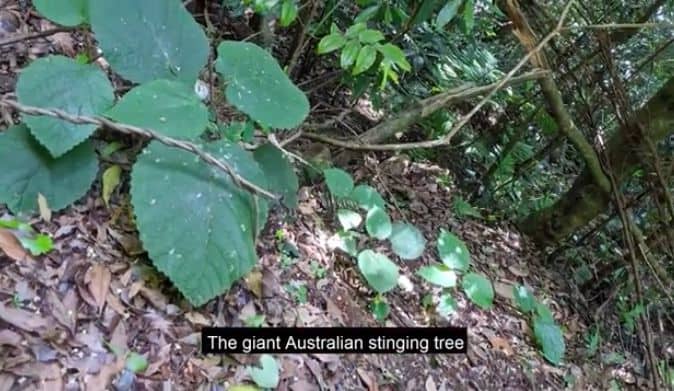They discover a new neurotoxin in the Gimpi Gimpi that causes a pain similar to the bite of a spider or a cone snail
It’s called Gympie-Gympie or “Suicide Plant” and by that name, you can’t expect anything good. This Australian tree, a member of the nettle family, is one of the most venomous plants in the world and causes extreme pain that can last for weeks. How can it be so stinging? Researchers at the University of Queensland (UQ) have discovered the reason. The bush contains hitherto unknown neurotoxins surprisingly similar to those found in spiders, scorpions or cone snails, considered by some experts to be the most poisonous animals.
“The Australian stinging tree species are particularly notorious for producing excruciatingly painful stings, which unlike those of their European and North American relatives, can cause symptoms that last for days or weeks,” says Irina Vetter of the Institute for Molecular Bioscience of the UQ and team member of the research group.
“Like other stinging plants such as nettles, the giant stinging tree is covered in needle-like appendages called trichomes that are around five millimetres in length — the trichomes look like fine hairs, but actually act like hypodermic needles that inject toxins when they make contact with skin,” explains Vetter.
Historically, small molecules have been tested in trichomes such as histamine, acetylcholine and formic acid, but injecting them does not cause severe and lasting tree pain, suggesting that it contained an unidentified neurotoxin. The team found and discovered that it had a completely new class of mini proteins they called “Gympietides”, after the plant’s indigenous name.
New pain relievers
“Although they come from a plant, the gympietides are similar to spider and cone snail toxins in the way they fold into their 3D molecular structures and target the same pain receptors—this arguably makes the Gympie-Gympie tree a truly ‘venomous’ plant“, concludes the author of the study. Additionally, she notes that prolonged, stinging tree pain can occur because gympietides permanently change sodium channels in sensory neurons, not because fine hairs get stuck in the skin.
“By understanding how this toxin works, we hope to provide better treatment to those who have been stung by the plant, to ease or eliminate the pain,” says Vetter. For example, with the development of new painkillers.
Since plants and animals share the same method of causing pain, researchers wonder when and how these toxins evolved. They point to two possibilities: evolution from an ancestral gene into an ancient shared ancestor or convergent evolution, where nature reinvents the most suitable structure to suit a common purpose.
